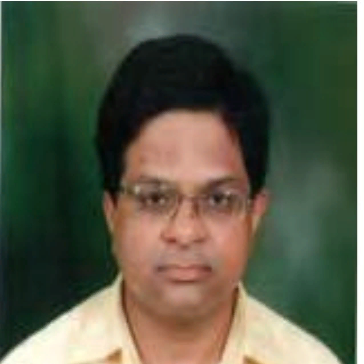International Journal of Image, Graphics and Signal Processing (IJIGSP)
IJIGSP Vol. 6, No. 2, 8 Jan. 2014
Cover page and Table of Contents: PDF (size: 733KB)
Facial Expression Recognition Based on Features Derived From the Distinct LBP and GLCM
Full Text (PDF, 733KB), PP.68-77
Views: 0 Downloads: 0
Author(s)
Index Terms
Distinct LBP, First Ordered Compressed Image, Statistical, Structural approaches, Triangular pattern
Abstract
Automatic recognition of facial expressions can be an important component of natural human-machine interfaces; it may also be used in behavioural science and in clinical practice. Although humans recognise facial expressions virtually without effort or delay, reliable expression recognition by machine is still a challenge. This paper, presents recognition of facial expression by integrating the features derived from Grey Level Co-occurrence Matrix (GLCM) with a new structural approach derived from distinct LBP’s (DLBP) ona 3 x 3 First order Compressed Image (FCI). The proposed method precisely recognizes the 7 categories of expressions i.e.: neutral, happiness, sadness, surprise, anger, disgust and fear. The proposed method contains three phases. In the first phase each 5 x 5 sub image is compressed into a 3 x 3 sub image. The second phase derives two distinct LBP’s (DLBP) using the Triangular patterns between the upper and lower parts of the 3 x 3 sub image. In the third phase GLCM is constructed based on the DLBP’s and feature parameters are evaluated for precise facial expression recognition. The derived DLBP is effective because it integrated with GLCM and provides better classification performance. The proposed method overcomes the disadvantages of statistical and formal LBP methods in estimating the facial expressions. The experimental results demonstrate the effectiveness of the proposed method on facial expression recognition.
Cite This Paper
Gorti Satyanarayana Murty,J Sasi Kiran,V.Vijaya Kumar,"Facial Expression Recognition Based on Features Derived From the Distinct LBP and GLCM", IJIGSP, vol.6, no.2, pp. 68-77, 2014. DOI: 10.5815/ijigsp.2014.02.08
Reference
[1]M. Turk, A. Pentland, Eigenfaces for recognition, Journal of Cognitive Neu- roscience 3 (1991) 72–86.
[2]P. Belhumeur, J. Hespanha, D. Kriegman, Eigenfaces vs. fisherfaces: class specific linear projection, IEEE Transactions on Pattern Analysis and Machine Intelligence (1997) 711–720.
[3]M. Bartlett, J. Movellan, T. Sejnowski, Face recognition by independent component analysis, IEEE Transactions on Neural Networks 13 (2002) 1450–1464.
[4]B. Heisele, Y. Ho, T. Poggio, Face recognition with support vector machines: global versus component-based approach, in: Proceedings of International Conference on Computer Vision, 2001, pp. 688–694.
[5]T. Ojala, M. Pietikainen, D. Harwood, A comparative study of texture measures with classification based on feature distributions, Pattern Recognition 29 (1996) 51–59.
[6]B. Fasel and J. Luettin. Automatic facial expression analysis: A survey. Pattern Recognition, 2003.
[7]Matthew A. Turk and Alex P. Pentland. Face recognition using eigenfaces. Pattern Recognition, 1991.
[8]Marian Stewart Barlett, Gwen Littlewort, Ian Fasel, and Javier R. Movellan. Real time face detection and facial expression recognition: Development and applications to human computer interaction. In Proceeding of the 2003 Conference on Computer Vision and Pattern Recognition Workshop, 2003.
[9]Philipp Michel and Rana El Keliouby. Real time facial expression recognition in video using support vector machines, 2003.
[10]Ira Cohen, NicuSebe, Fabio G. Cozman, and Thomas S. Huang. Semi-supervised learning for facial expression recognition. In Proceedings of the 5th ACM SIGMM, 2003.
[11]M. Lyons, S. Akamatsu, M. Kamachi, and J. Gyoba. Coding facial expressions with gabor wavelets. In Proceedings of the Third IEEE International Conference on Automatic Face and Gesture Recognition, Nara, Japan, Apr. 1998.
[12]Zhengyou Zhang, “Feature-Based Facial Expression Recognition: Sensitivity Analysis and Experiments with a Multi-Layer Perception”, International journal of pattern recognition and Artificial Intelligence 13(6): 1999 pages: 893-911.
[13]F. Dela Torre and J. F. Cohn. Facial expression analysis. In Th. B. Moeslund, A. Hilton, V. Kruger, and L. Sigal, editors, Guide to Visual Analysis of Humans: Looking at People, pages 377–410. Springer, 2011.
[14]Donato, M.S. Bartlett, J.C. Hager, P. Ekman, T.J. Sejnowski, "Classifying Facial Actions", IEEE Trans. Pattern Analysis and Machine Intelligence, Vol. 21, No. 10, pp. 974-989, 1999.
[15]M. Pantic, L.J.M. Rothkrantz, "Automatic Analysis of Facial Expressions: the State of the Art", IEEE Trans. Pattern Analysis and Machine Intelligence, Vol. 22, No. 12, pp. 1424-1445, 2000.


